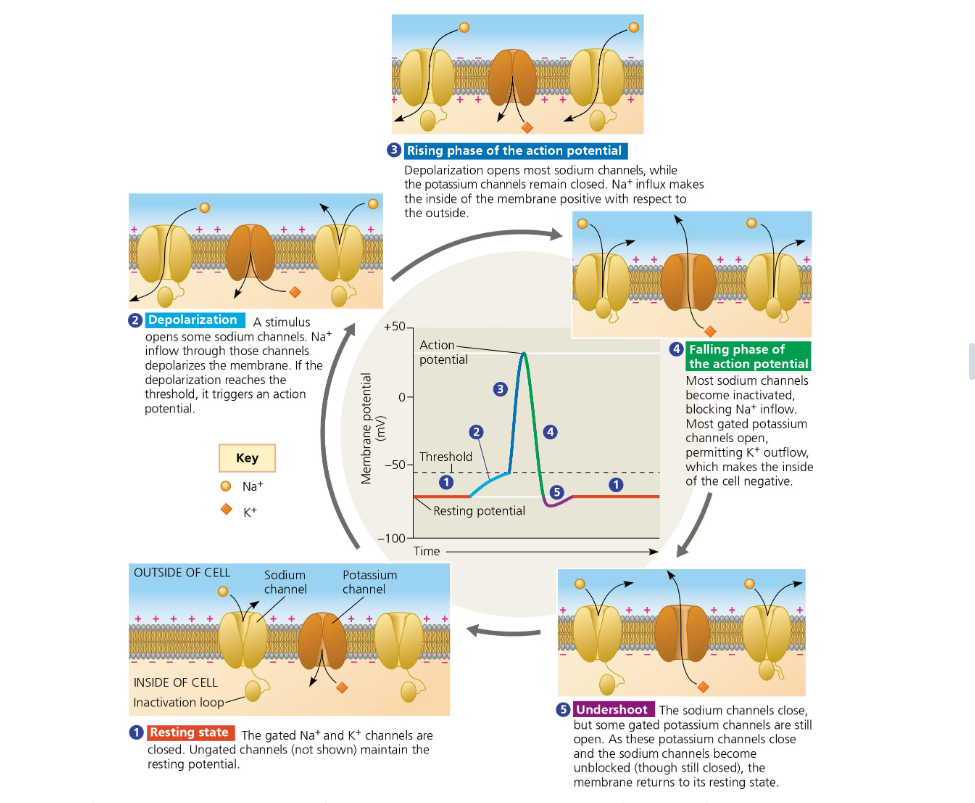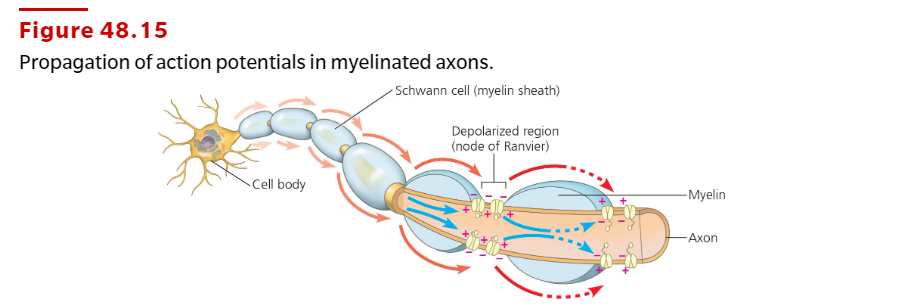48.3 Action potentials are the signals conducted by axons
1/13
There's no tags or description
Looks like no tags are added yet.
Name | Mastery | Learn | Test | Matching | Spaced |
|---|
No study sessions yet.
14 Terms
gated ion channels
ion channels that open or close in response to stimuli, altering membrane potential
voltage-gated ion channel
a gated ion channel that opens or closes in response to a shift in voltage
gated potassium channels in a resting neuron
opens and increases permeability for K+
hyperpolarization
more negative in the cell because K+ goes out (EK+ -90 mV @37 degrees celsius)
depolarization
sodium goes in, changing membrane gradient; more positive inside the cell membrane (ENa+ +62 mV @37 degrees celsius)
graded potential
a shift in the membrane potential, magnitude depends on stimulus
action potential (resting state, depolarization, rising phase, falling phase, and undershoot)
5 stages: 1. at resting potential, voltage-gated sodium and potassium channels are closed and ungated potassium channels are open. 2. the stronger the stimulus, more depolarization, the more gated sodium channels open. 3. after crossing threshold (-55 mV), all sodium gated channels open, causing spike in charge, therefore called the rising phase 4. closes gated sodium channels and opens voltage-gated potassium channels to open, aka falling phase. 5. sodium channels close but potassium channels stay open until resting state

threshold
if stimulated, only some ion channels will open to allow sodium in, but after passing threshold, all will open; threshold being -55 mV
refractory period
inability to trigger action potential due to inactivation of sodium channels
Thought explanation:
through sodium-potassium pump (undershoot), potassium comes back in and sodium goes back out. this membrane gradient is needed to do action potential again alter so that there can be potassium that goes out and sodium that goes back in
myelin sheath
the electrical insulation that surrounds vertebrate axons; produced by glia; mostly lipids
oligodendrocytes
a type of glia in the CNS that produces myelin sheaths
schwann cells
the glia in the PNS that produces myelin sheath
nodes of Ranvier
voltage-gated sodium channels that can go through the myelin sheath

saltatory conduction
the propagation of the action potential due to opening and close of ion channels (nodes of Ranvier)